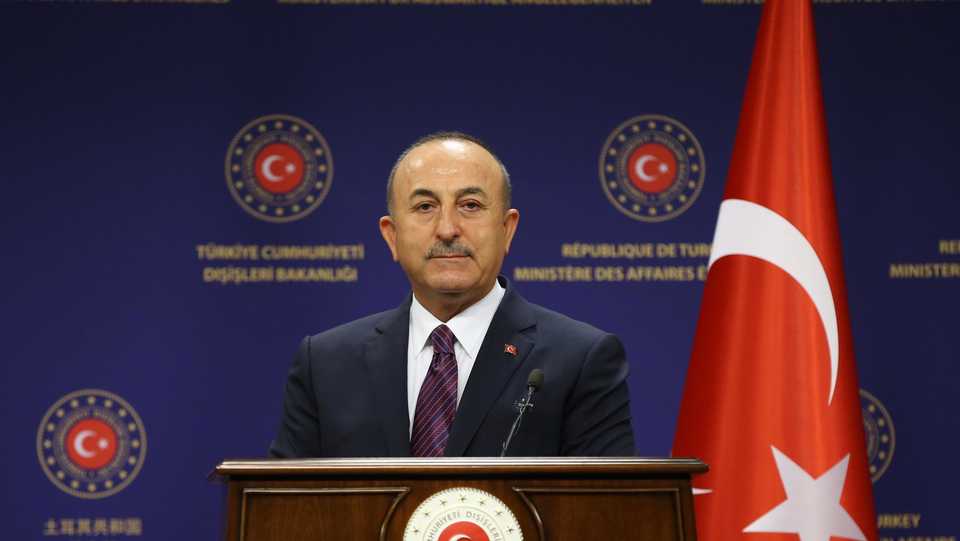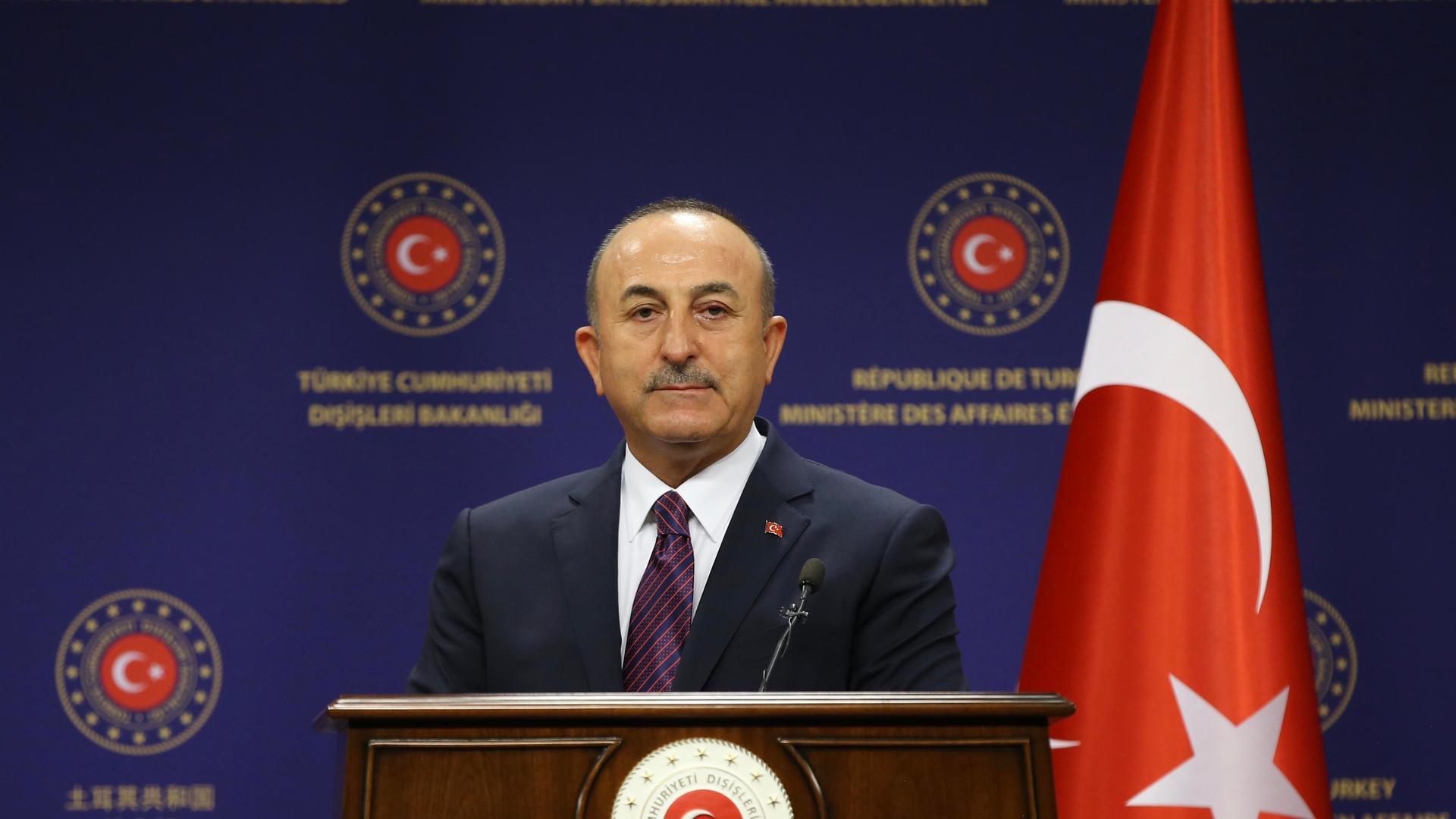
Turkey’s top diplomat called for urgent dialogue between Ankara and the European Union to address tensions in the Eastern Mediterranean, Libya, and developments in the Azerbaijan-Armenia conflict.
In an interview with Italian news agency Agenzia Nova during his recent visit to Rome, Turkish Foreign Minister Mevlut Cavusoglu said he considered Italy “a strong NATO ally and a balanced partner in regional issues.”
He added, however, that Turkey was disappointed by the outcome of the EU Special Council on October 1-2, which he believed “did not yield the expected results.”
Cavusoglu said the summit’s conclusions “were designed again to put the solidarity within the union before international law and equity,” accusing the EU of having been “once more taken hostage by the maximalist demands of Greece and Greek Cypriots.”
Tensions have been running high for months as Greece has disputed Turkey’s rights to energy exploration in the Eastern Mediterranean.
READ MORE: Turkey, Greece agree on deconfliction mechanism in East Med
Ankara sent out drill ships to explore for energy on its continental shelf, asserting its rights in the region as well as those of the Turkish Republic of Northern Cyprus.
EU countries have been trying to mediate between Turkey and Greece over their conflicting demands.
Turkey says that Greece’s maritime territorial claims in the region, based on small islands near the Turkish coast, are in defiance of the international law.
“Turkey is the most developed and the biggest electricity and gas market in the region,” Cavusoglu said. “It is not possible to establish a functional and fruitful mechanism in the Eastern Mediterranean by ignoring these facts.”
READ MORE: Greece calls to ‘give diplomacy a chance’ in eastern Mediterranean
Cavusoglu said there was “an urgent need to normalise our relations with the EU,” noting that Turkey and the EU must have common short-term goals, including more engagement and dialogue.
Armenia and Azerbaijan conflict
Addressing the occupied Upper Karabakh conflict between Armenia and Azerbaijan, the Turkish minister stressed that “the only viable solution to the conflict goes through the total withdrawal of Armenian forces from the occupied Azerbaijani territories in line with the international law.”
He noted that “we need more than just another cease-fire,” calling for “a clear call on Armenia to abandon its expansionism.”
READ MORE: Armenia targets Azerbaijan’s civilians in fresh fighting
The ongoing clashes began on September 27, when Armenian forces targeted civilian Azerbaijani settlements and military positions in the region, leading to casualties.
Relations between the two former Soviet republics have been tense since 1991 when the Armenian military occupied Upper Karabakh, also known as Nagorno-Karabakh, an internationally recognized territory of Azerbaijan.
READ MORE: Azerbaijan frees more villages around occupied Karabakh as fighting rages
Multiple UN resolutions, as well as many international organisations, demand the withdrawal of the Armenian forces.
“If Armenia chooses to become a constructive, responsible partner for peace in the region, including with Azerbaijan, it has a lot to gain,” Cavusoglu said.
War in Libya
The Turkish diplomat, who on Friday in Rome met his Italian counterpart, Luigi Di Maio, also discussed the situation in Libya, stressing the importance of the Italian role in the region.
He said that both Turkey and Italy are working to bring the conclusions of the Berlin Conference to “a sustainable, viable, lasting, and legitimate political solution in Libya,” with the common interests of rebuilding the country and combating illegal migration in the Mediterranean.
READ MORE: UN chief says Libya's future at stake, urges ceasefire
Responding to a question on the possible outcome of the upcoming US presidential election, Cavusoglu said that relations with the US have continued to develop under both Republican and Democratic administrations.
“Therefore, Turkey will continue to constructively engage with the US regardless of who wins,” he concluded.
READ MORE: Ankara, Rome seek durable peace in Libya










Discussion about this post